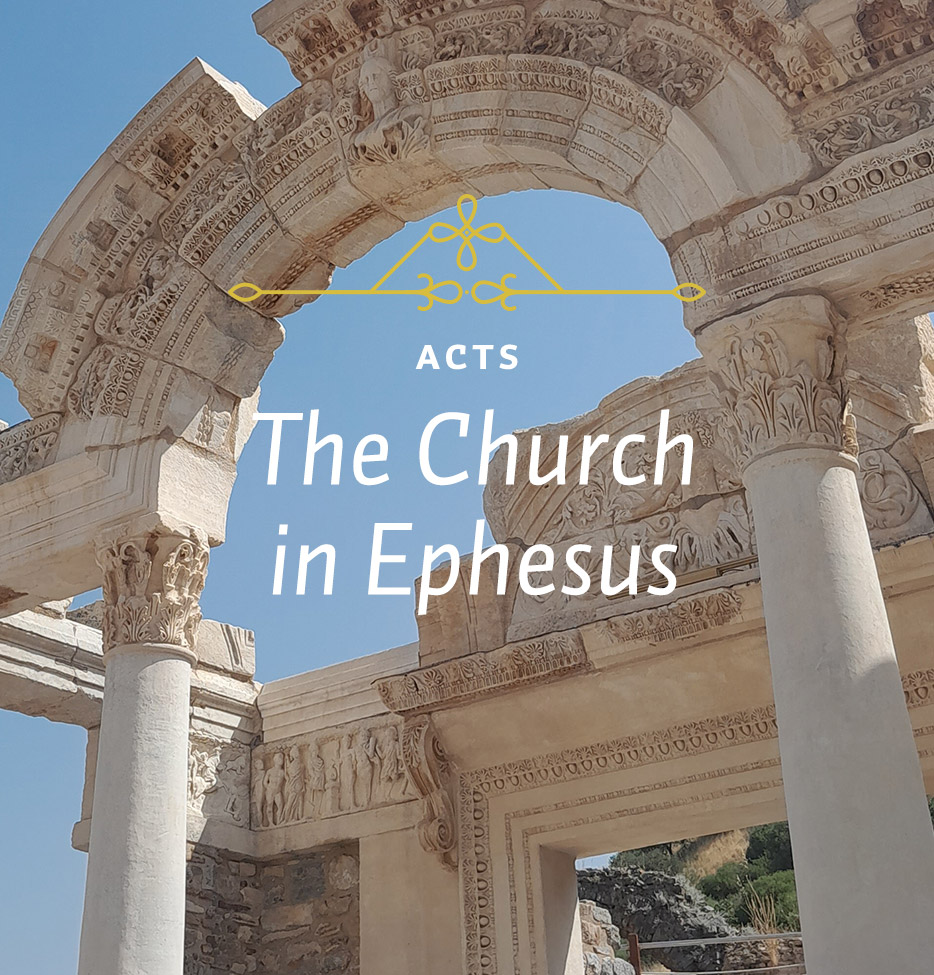A second element in Paul’s strategy is that he worked with or cooperated with other Christians. He had what we would call a multiple or pluralistic ministry. We have already seen that Paul followed this strategy on his missionary journeys in general, always taking along two or more additional workers. In Ephesus the ground was being prepared and the work was being carried forward by Priscilla and Aquila, and Apollos. Aquila and his wife were establishing a base for Paul and would later be able to tell him where he might most effectively begin when he returned. Apollos was teaching. We are told that he reasoned fervently and accurately about Jesus (v. 25).
Apollos had some weaknesses. At first, he seems not to have known that Jesus, the one who had been promised by John the Baptist, had come. That was a serious defect, but it was easily remedied by Priscilla and Aquila. As we saw in last week’s study, they invited Apollos to their home “and explained to him the way of God more accurately.”
Working with others is an important feature of city work. I find that in most city work (in fact, in most Gospel work wherever done) we are seldom called to work alone. Working alone is not impossible, and sometimes we have to do it when there is no one else to call on. I think of Saint Patrick. He was captured by pirates and carried off to Ireland when he was just a boy. He was very much alone, but he witnessed there and was greatly blessed by God. That happens. But often when we are called to a work, we find that the area to which we are called has been prepared by God already, not only in the sense that the hearts of the people have been prepared, but in the sense that other laborers have been sent to work with us.
The third element in Paul’s urban strategy is what is chiefly described in chapter 19, namely, the specific church planting effort in Ephesus, along with his two helpers, Timothy and Erastus. The chapter fails to mention these men at the beginning, but we discover at the end that they were there. Verse 22 tells us that Paul sent Timothy and Erastus to Macedonia, after the work in Ephesus had gotten under way, while he stayed a bit longer. What was the nature of the ministry by which Paul set out to establish churches? What did he do? There are three important things mentioned, two of which we will study in the rest of today’s study.
1. Paul taught the Bible. Did the Apostle Paul have a rock concert? Obviously, he did nothing of the sort. Paul had one strategy only, and that was to teach the Word of God. And he really did it. He did it everywhere. Everywhere he went, he went into the synagogues and taught from the Scriptures that Jesus was the Messiah. He taught that this one, who had come in his own lifetime, who had lived, taught, died and then been raised from the dead, this Jesus of Nazareth, was the fulfillment of the Old Testament Scriptures. He took the Old Testament, showed what God had said His Messiah would do, and then told how Jesus had done it.
2. He taught all kinds of people. It is interesting to go through this chapter and see the kinds of people that were dealt with at Ephesus.
There were disciples of John the Baptist. Their situation was similar to that of Apollos. These men had heard of John’s teaching. They knew that people were to repent of sin and prepare for the coming of the Messiah. But like Apollos, they had not heard that Jesus had come. So when Paul arrived in the city and began to teach, here were these disciples whose hearts had been prepared but who had not yet heard the full Gospel. Paul conducted a special ministry with them. And when he began to explain to them that Jesus had come, their hearts were ready for the message and they believed at once. The Holy Spirit came upon them just as He had come upon the disciples in Samaria when the Gospel first came to them.
Paul also taught the Jews. He had been in their synagogue before on his first visit. They had asked him to come back (Acts 18:20). When he got back to Ephesus, he returned to the synagogue and began to teach them again. The text says, “Paul…spoke boldly there for three months” (Acts 19:8). Three months was a long time compared with some other places he had visited, where he had been put out after only a few weeks. So there must have been a genuinely receptive audience. However, as time went on the attitudes of the unbelievers hardened and Paul was forced to leave. We are not told what the results of the three months of teaching were, but we can assume that some actually did believe as a result of this ministry.
Paul taught Gentiles. They were the large majority of those who lived in Ephesus, and Paul began a specially directed ministry to them after he had been forced to leave the Jews’ synagogue.






